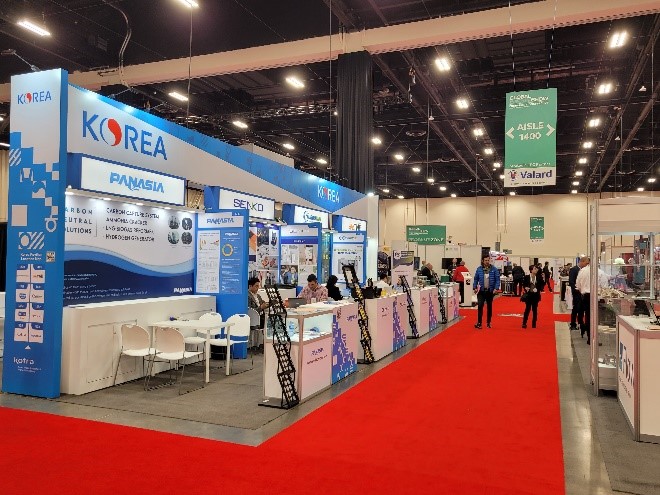
Calgary recently hosted the 2023 Global Energy Show from June 13-15th. The annual event brought together over 30,000 attendees and over 600 companies for a three three-day exhibition and conference to showcase the state of play in Canada’s energy sector. The Global Energy Show attracts international interest with attendees from over 110 countries participating in the event. During 2023, delegations from the Czech Republic, India, South Korea, and the United States all had a major presence on the exhibition floor. These numbers add up to making it one of the most significant annual energy sector events in North America. Formerly named the Global Petroleum Show, the event was renamed in 2020 to better reflect the changing nature and broadening context of Canada’s energy landscape.
ICTC’s recently published report, Clean Energy and Pathways to Net-Zero: Jobs and Skills for Future Leaders, explores Canada’s emerging clean energy sector and its workforce implications.


The changing nature of Canada’s energy sector was on full display in 2023. While many products and services featured in the exhibition hall were specifically built for the oil and gas industry, many companies were also showcasing clean energy offerings. CBC News reports that in 2022, 60 percent of the exhibition floor space at the Global Energy Show was devoted to clean energy technology, up from 10 percent in the years prior to the COVID-19 pandemic. In 2023, renewables such as solar and electric battery solutions, hydrogen fuel and geothermal power, and carbon capture utilization and storage (CCUS) were all on display. Nuclear energy was also represented at the show with exhibitors promoting small modular reactor (SMR) technology.


Canada’s digital economy was also well represented at the Global Energy Show. As energy is a technology intensive sector, both conventional oil and gas and clean energy companies benefit from emerging digital technologies. Digital twinning for plant and facilities management, data analytics and AI, enterprise resource planning, internet of things, 3D printing and additive manufacturing, robotics, and geographic and land information systems were among the digital technologies on display on the exhibition floor.


Notably, in ICTC’s recent study on the labour market impacts of clean energy, clean energy employers identified geography and surveying technologies, such as Motorola GDS, ArcGIS, 3D surveying, drones, and other remote sensing infrastructure as an important skillset for clean energy workers to have. In addition to geography and survey technologies, clean energy employers also seek candidates with skills and experience related to cloud infrastructure tools, operating systems software, facilities or inventory management software, and tools such as Natural Resources Canada’s RETScreen Clean Energy Management Software Platform.
Clean energy, environmental sustainability, emissions reduction, and social responsibility emerged as key themes in the over 300 technical and business presentations, poster sessions, and panels throughout the exhibition, and at the concurrent strategic and technical conferences.
Topics such as women in energy; diversity, equity, and inclusion (DEI); environmental, social, and governance (ESG) issues; and innovation and enterprises were all points of discussion. Calgary-based SAIT polytechnic sponsored an exhibition theater that hosted sessions on careers in the energy industry directed at students at young people. There was also significant discussion on global geopolitical tensions, and in particular Russia’s 2022 invasion of Ukraine, and their effects on global energy markets. Net-zero, emissions abatement, GHG markets and voluntary GHG credits, and fugitive methane emissions detection were all thoroughly covered as well. The variety of issues point to the importance of the complexity of the environment Canadian energy companies operate within.


Large industry events such as the Global Energy Show, held within a single venue, showcase the present state—the challenges, opportunities, issues, and tenor—of an industry. In 2023, the Global Energy Show highlighted a notable post-pandemic shift in the way Canadian industry talks about energy. While conventional oil and gas continued to have a significant presence, clean energy has also emerged as a major force at the show and throughout Canada’s energy landscape. The event showcases Alberta’s continued prowess in the Canadian energy sector: both conventional and clean.
ICTC recently published a report on labour market effects of Canada’s clean energy transition and road to net-zero. New jobs will be centered on renewable energy, hydrogen, and energy efficiency. Interested readers can access the report here.
